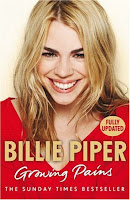 ** Spoilers ahoy: vague references to the ending and bleak tone overall. **
** Spoilers ahoy: vague references to the ending and bleak tone overall. **The Book: Feed
The Author: M.T. Anderson
How I Found It: It was always a title I heard bandied about in the world of YA scifi and fantasy, but I never picked it up until it was assigned to me this semester in Young Adult Lit.
The Review: I think Amazon.com knows a bit too much about me. It analyzes my trends and throws products at me that it thinks I'll like. I just clicked through to the site, and the front page is plastered with Doctor Who products for me to consider, as I'd been looking at the page for The Glamour Chase earlier as I composed my review.
Going over to the "My Amazon.com" section, I look at what's been recommended for me: a whole host of Disney movies (because I recently purchased Tangled), a reasonable chunk of Jane Austen paraliterature (because I've indicated that I own quite a few), more Doctor Who products (... I'm not in too deep; what're you talking about). They've pinned me and my current interests down fairly easily. I'm sure I'll be moseying on over to the page when I'm looking for something to read/watch, etc.
Then there's the slightly disconcerting emails I've been getting from Borders. As an example, two purchases I made there: Maggie Stiefvater's Linger and Mary Shelley's Frankenstein. About a month after I made each purchase, I got an email inviting me to review the products. But not a generic email--oh, no. No, they included the exact editions I bought. I was a bit freaked out when I saw them. They're tracking my shopping habits? Why?
I give you this tangent because it's exactly what Feed is about. It's basically the precursor to the film Wall-E (which I've only seen once, because I consider it eminently depressing). It shows us a consumerist culture where everyone has a "feed" in their brains, putting everything at a person's fingertips. Shopping, TV and movies, a Wikipedia-esque access to facts and details, communications reminiscent of texting and instant messaging: all there inside your brain.
Titus and his friends are normal teenagers, almost slavishly obeying their feeds and never questioning. Everything changes when they take a trip to the moon, where they meet Violet--a girl who can write with pen and paper, who wants to resist the feed and the consumerism it promotes. While Titus, his friends, and Violet are partying at a club, their feeds are attacked by a politically active hacker who wants to spread his anti-feed message.
During a few days in the hospital where their feeds are offline, Titus and Violet find themselves growing closer. Once they emerge from the hospital with their feeds online, they decide to pursue a relationship--Violet wants to open Titus' eyes to the events in the outside world he chooses to ignore, whereas Titus' curiosity about Violet's ways rises. Even as disturbing events grip the two of them--Violet's feed begins to seriously malfunction, mysterious "lesions" cause citizens' skin to fall off--Titus and Violet push each other into unfamiliar territory, learning about each other all the while.
Feed paints a bleak, timely, and prescient look at our society, but one I didn't feel was original enough to interest me. As you can tell from my above tangent, I think Feed is an accurate representation of today's consumer culture. It also has some disturbing predictions about what might be on the horizon in the next couple decades: the President is hideously inarticulate and uses the word "thing" in lieu of the word he can't find. Titus' father tries to "chat" him (the equivalent of instant messaging) and is reluctant to talk to him face to face. A person can get a tattoo that forces them to say a company name in every sentence.
There is no happy ending here--how could there be? And sorry to say that I don't think I felt for any of the characters. Violet: her being educated and politically aware was revolutionary in itself, given the average level of knowledge among Titus and his friends (the scene where no one remembers the origins of the Kent State riots, among others--only that they're the namesake of an awesome "riot chic" clothing line... shudder!). But what else was she really doing to fight the feed? I wanted more rebellion, wanted her to be more like the hacker we see in the first part. Titus and his friends: ultimately, they're all jerks. You think Titus would be transformed by his experience, but he ricochets between that and that same old consumerism, so what the book leaves us with is the feeling that this can't be escaped. Cheery, ain't it?
Stylistically, the book is well put-together and well-written. Anderson intercuts his prose with jarring end-of-chapter blips from Titus' feed, never letting the reader ignore it, which is as it should be. The communication, and failure to do so, between the characters is accurately represented. All of this is wonderful, but what did the book really give us? A look at a terribly depressing society, with no chance of escape and no rebellion that's really succeeding all that much. I wanted there to be more rising up, and I didn't get that. It wasn't what I was expecting of a YA dystopian; I'll give it that much. So anyone who's looking for a real revolution-against-the-government dystopian story should look elsewhere, but anyone who's interested in an incredibly bleak but well-structured YA commentary on the consumer culture should look here. It's written well and comments on what it set out to comment on, but there's not much original about it and the characters aren't as sympathetic as they could have been. What it comes down to is that your mileage may vary!

